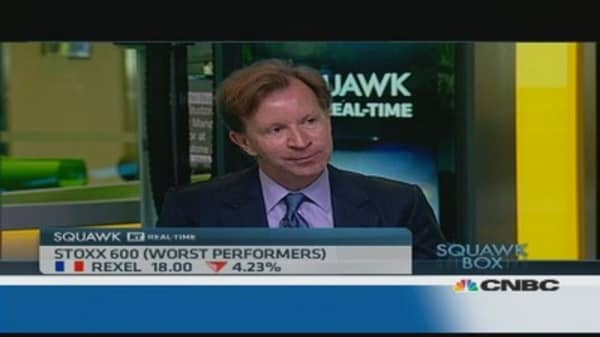German federal elections in September will finally "put to bed" the argument of austerity across Europe with economies focusing more on growth strategies to drag their countries out of recession, John Studzinski, the senior managing director at Blackstone Group told CNBC.
"I think we are actually closing this chapter in European reform of where austerity is important," he said on Friday. "One of the benefits of the German election is it's going to, I think, put to bed this whole question of austerity."
The German government has been reluctant to relax strict reform measures put in pace for debtor nations in order to placate the German public ahead of elections. But once elections are over, expectations are that these measures will be relaxed.
(Read More: Goodbye southernEurope: Is this Germany's alternative?)
German Chancellor Angela Merkel's governing coalition's has managed to increase its lead over the opposition SPD, according to a Forsa poll conducted for German magazine Stern and broadcaster RTL. Merkel's conservative Christian Democratic Union, or CDU, and its Bavarian sister party, the Christian Social Union, have a stable 41 percent of the majority.
Merkel's current tenure, after she was re-elected in 2009, has been dominated by the European sovereign debt crisis. Merkel and Germany have been criticized for imposing tough austerity measures on indebted euro zone nations. In Germany, there's been growing angst about the use of taxpayer money to bail out Greece and other peripheral nations.
Bernd Lucke, the leader of Germany's new euro-skeptic party, Alternative for Germany (AfD), told CNBC the southern countries of Europe should be forced out of the single currency.
(Read More: Has Super Mario succeeded in saving Europe?)
Studzinski told CNBC that after the German elections, leaders across Europe will be able to focus on job creation and investment.
"I think they need to reiterate the fact that Germany, the U.K. and Italy are three of the biggest manufacturing economies in the world. And job creation, through manufacturing, has to be - and you're starting to see it - more and more important."
—By CNBC.com's Matt Clinch. Follow him on Twitter @mattclinch81




